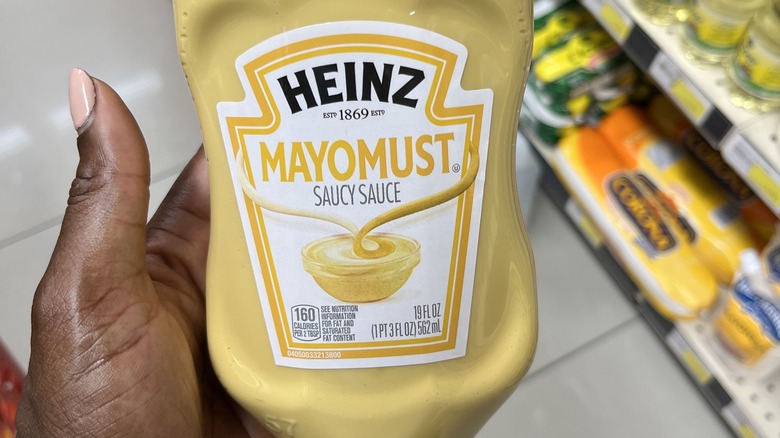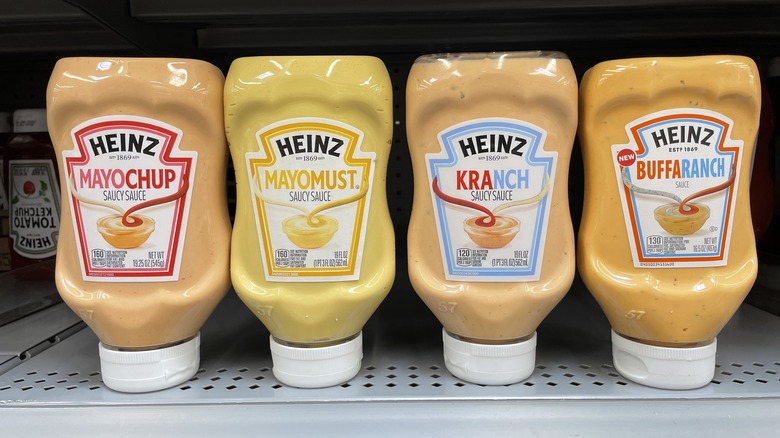The Internet Can't Agree On What Mayo Mustard Should Be Called
For those of you who prefer combining your sandwich and fry condiments into one container, Heinz offers a product called Mayomust that — you guessed it — mixes mayonnaise and mustard into one all-purpose dipping sauce (minus the ketchup, of course). Naturally, with a curious name like Mayomust, the Internet was abuzz with plenty of people chiming in with their own unsolicited — and in many cases, ill-advised — suggestions for what it should be called instead. The product received ample criticism due to the word "must" and its association with an unpleasant smell, but Heinz executives didn't budge or cave in to demands for a name change.
A couple of people commenting online observed that Heinz's competitor Hellman's already derived a catchy name for the mustard-mayo duo – Dijonnaise. For trademarking reasons, Heinz couldn't use the name of a competitor, but that doesn't mean they can't do better than "Mayomust."
The name game
Redditors weighed in on the mayo-mustard naming game, sharing several different options including "mayostard" and "mustardanaise." Another mentioned that possibly "mayard" could work. Others proposed funny names such as "musty" and "mayomustnot," referencing the silly nature of creating an item like this in the first place. One individual took the absurdity to a whole other level by coming up with the long and clunky appellation of "mustmayostardayonnaise." Heinz might have had difficulty fitting that name on the bottle.
Mayonnaise and mustard isn't Heinz's only condiment combo to garner social media attention. They also sell a Mayochup (mayonnaise and ketchup) and Mayocue (mayonnaise and barbecue sauce) among others. The launch of Mayochup in 2018 created an international Internet firestorm, not just for its name, but also concerning questions over the sauce's origins and whether it should be considered cultural appropriation. While Heinz might have preferred customers associate a mix of ketchup and mayonnaise with its own brand, as it turns out, just such a hybrid has been a part of Latinx culinary traditions going back quite some time.
Mayomust may not have inspired an international outcry, but a lot of people really didn't care for the name.

